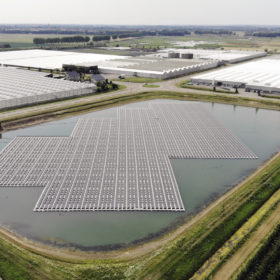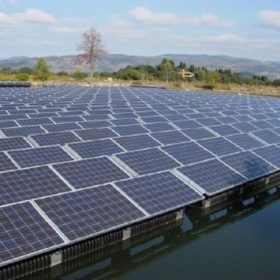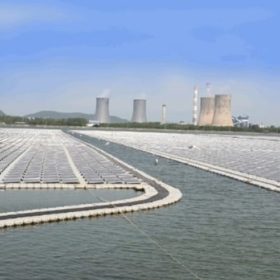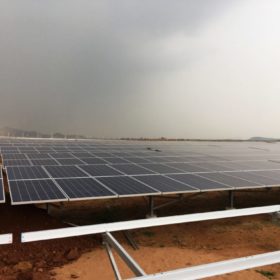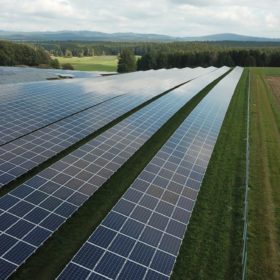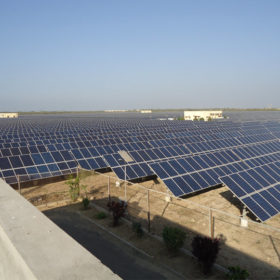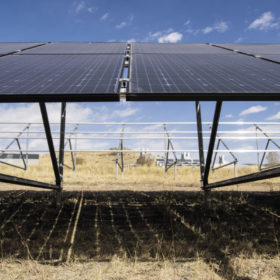ReNew Power expects to commission 3 MW floating solar project before December
The floating solar plant, located at Meghadrigedda reservoir in Visakhapatnam, occupies 0.005 sq. km out of 5 sq.km of the reservoir area.
BHEL commissions India’s largest floating solar plant
The state-owned engineer and solar EPC has commissioned a 25 MW project at NTPC’s Simhadri thermal power station, in Andhra Pradesh.
NTPC commissions India’s largest floating solar project
The state-run energy company has commissioned a 25 MW plant on the reservoir at its Simhadri thermal power station, in Andhra Pradesh. The installation features more than 100,000 solar modules.
IndiGrid acquires 100 MW solar assets from Fotowatio Renewable
With this, India Grid Trust (IndiGrid) has become the first infrastructure investment trust in India to acquire renewable energy assets. The acquisition of 100 MW solar assets from the Spanish developer was done at an enterprise value of INR 6.6 billion.
Battery major Amara Raja plans 50 MW solar plant
The Indian automotive battery major has announced the setting up of a 50 MW solar power plant in Chittoor District of Andhra Pradesh. The plant—to be built at INR 220-crore investment—will help reduce the manufacturer’s carbon footprint while lowering its electricity bill. The firm, which has already set up a pilot plant facility for Lithium-ion cell development, is also mulling investments into energy storage for the renewables sector.
Andhra Pradesh inching towards 10 GW solar for farming needs
The 6.4 GW auction success takes the state government closer to its 10 GW solar target to provide free, uninterrupted power supply to farmers during the daytime.
6.4 GW solar auction concludes with lowest price of INR 2.47/kWh
The Andhra Pradesh solar auction was oversubscribed by 8.5 GW, but the final prices are significantly higher than the INR 1.99-2.00/kWh record-low tariffs discovered in recent auctions.
Andhra Pradesh tenders 6.4 GW of solar capacity for agricultural loads
Solar power developers have until December 28 to bid for an aggregate 6.4 GW of grid-connected solar power capacity, which shall come up across ten locations in the state. The Andhra Pradesh Green Energy Corporation Ltd (APGECL) will serve as the offtaker and supply the power procured from these projects to meet the demand of agricultural loads in the State.
UK investor acquires two Acme Solar projects aggregating 400 MW
Private equity investor Actis has completed the acquisition of Haryana-based Acme Solar’s 400 MW PV assets in the states of Andhra Pradesh and Madhya Pradesh.
Andhra Pradesh allocates 57% of energy budget to ‘free power for agriculture’ scheme
The overall energy outlay of Rs 6984.73 crore for the year 2020-21 is much lower than 2019-20’s revised estimate of Rs 11,639 crore.
